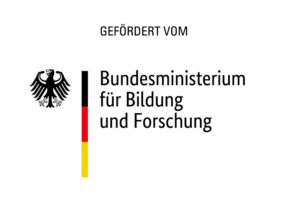Stefan Schlegel, Odile Ammann
Die Idee, dass die Form eines Artefaktes nach dessen Funktion gestaltet werden müsse, ist seit dem Ende des 19. Jahrhunderts eine zentrale Design-Maxime: Form follows function. Wo die Formen sich aber verändern, zum Beispiel, weil sich ein Produkt neu in digitaler Form erstellen lässt, muss die Frage erlaubt sein, ob es nicht noch andere als seine bisherigen Funktionen erfüllen kann. Menschen sind aber besser darin, aus der Funktion Formen abzuleiten, als aus Formen Funktionen. Daher lohnt es sich, die Frage nach alternativen Funktionen ganz gezielt zu stellen. Wir wollen das nachfolgend für das Produkt der rechtswissenschaftlichen Kommentare tun.
Continue reading >>
Raffaela Kunz
The Budapest Open Access Initiative is celebrating its 20th anniversary and today it seems that we are closer than ever to finally concluding the “access revolution” predicted by many since the arrival of the internet. Yet, developments in the publishing system increasingly suggest that the access revolution is much less revolutionary than expected. Reports gradually bring to light the extent to which publishers started to use the data tracking tools developed by “pioneers” such as Google and Facebook. This development could not only be the final blow for the Open Access movement’s potential to more radically and structurally change the way knowledge is being disseminated in the digital age but pose a systematic threat to the autonomy of the science system and academic freedom in the digital age.
Continue reading >>
Cengiz Barskanmaz
Almost 20 years after the adoption of the Berlin Declaration on Open Access to Knowledge in the Sciences and Humanities (2003), open access publications still play a comparatively marginal role in the legal academia. Yet legal scholarship is already benefiting from a public discourse that quality-assured legal scholarship blogs have initiated with their science-communicative opening. Admittedly, particularly the lack of sustainable funding models reinforces the disciplinary reluctance to embrace open access and open science in legal academia.
Continue reading >>
Daniel Hürlimann
In der schweizerischen Rechtswissenschaft bewegt sich einiges in Sachen Open Access. Auf der einen Seite sind viele Bottom-Up-Initiativen entstanden, auf der anderen Seite wird der freie Zugang zu rechtswissenschaftlicher Literatur vermehrt Top-Down gefordert – und teilweise auch gefördert. Es bleibt allerdings noch einiges zu tun, bis Open Access zum Standard wird. Dies gilt insbesondere für die Finanzierung von Zeitschriften. Die bisher bestehenden Finanzierungsmöglichkeiten fördern ein System, in dem Quantität mehr zählt als Qualität.
Continue reading >>
Paula Baldini
Despite its revolutionary potential, the movement towards amplifying open access can backfire if it does not expand quickly across the world. As it is today, the vast majority of authors who publish open access are based in European research institutions. By making these authors’ works more easily available than others, open access initiatives may end up dictating the terms of the international legal debate around the world.
Continue reading >>
Patricia Schiess
In spring 2016, the Liechtenstein Institute launched verfassung.li, the online commentary on the Constitution of the Principality of Liechtenstein. To date, it is the only commentary on the Constitution of Liechtenstein and – to our knowledge – the only open access commentary on a constitution in the German-speaking world.
Continue reading >>
Johannes Rux
Open Access aims to ensure that scientific findings are disseminated as widely as possible and thus reach (and can be further exploited) where they are of greatest use. Open Access assumes that the unrestricted access to research findings will enable further research and boost scientific progress. This is not restricted to STEM-subjects where speed is often essential to find solutions for looming problems but also applies to studies in the Humanities and Social Sciences including Law and Jurisprudence.
Continue reading >>
Julia Emtseva, Angelo Jr Golia, Tom Sparks
In 2021, the Zeitschrift für ausländisches öffentliches Recht und Völkerrecht (also known as the Heidelberg Journal of International Law) was reborn. Though one of the oldest public and international law journals, its editors have taken the decision to embrace a new era and mode of publishing. The ZaöRV is now a Platinum Open-Access journal.
Continue reading >>
Richard Holden
The notion that scientific progress depends on access to the existing stock of knowledge is an old one. It dates to the 12th century when the French philosopher Bernard of Chartres observed: “We are like dwarfs on the shoulders of giants, so that we can see more than they, and things at a greater distance, not by virtue of any sharpness of sight on our part, or any physical distinction, but because we are carried high and raised up by their giant size.”
Continue reading >>
Marcel Knoechelmann
Without specifying its meaning or context, openness remains an empty category. It commonly evokes a positive sentiment, but what does it mean to say: We are opening up this or that? And what does it disguise? It even compares with excellence in this respect: a word that is en vogue to be thrown into debates about the future of the academy.
Continue reading >>
Evin Dalkilic, Georg Fischer
Open Access suggests the absence of gates and gatekeepers – but this is evidently not the case. Who gets to publish what and where is still very much a decision made by certain people in certain positions following certain procedures. Although Open Access carries the promise of removing barriers and democratising access, numerous barriers beyond the obvious ones like paywalls or processing charges exist or are being installed.
Continue reading >>











